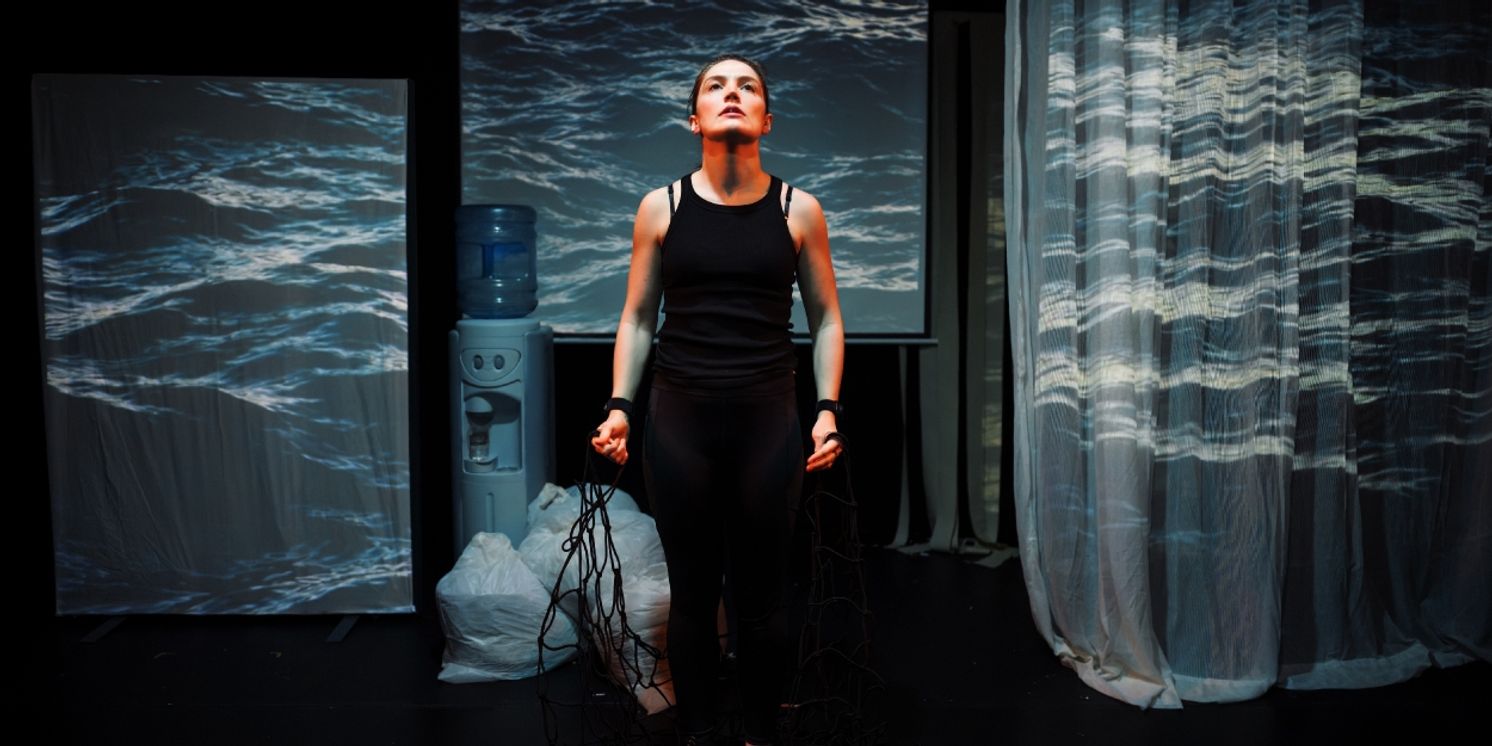Review: SURFACING, VAULT Festival
Papatango Prize winner Tom Powell's new play is is thought-provoking in all the right spots, but somehow the text has an unfinished feel to it.

![]() Luc is going through her therapy appointments for the day when Owen shows up. She doesn't seem to have any record of the young man, but she decides to give him a chance as he seems frazzled and in need of help. The usual mental health assessment leads to a fidgety conversation where Owen identifies the traumatic moment he found his sister after she'd drowned. This opens up the gates of Luc's own guilt-ridden history and she sets off on a bonkers adventure to try to heal herself.
Luc is going through her therapy appointments for the day when Owen shows up. She doesn't seem to have any record of the young man, but she decides to give him a chance as he seems frazzled and in need of help. The usual mental health assessment leads to a fidgety conversation where Owen identifies the traumatic moment he found his sister after she'd drowned. This opens up the gates of Luc's own guilt-ridden history and she sets off on a bonkers adventure to try to heal herself.
Surfacing promises motion sensor tech combined with motion-responsive video design, but they may be overselling their production a bit. Written by Papatango Prize winner Tom Powell and directed by Stephen Bailey, the piece ingeniously uses projections and captions designed by Ben Glover. Luc's inner monologue appears neatly behind her before scattering across the space, mirroring the journey her psychological well-being. Every attempt to use her own CBT training is sabotaged by her excessively critical subconscious.
Her world is suddenly taken over by the ghosts of her past. The lab mice she used to further her research haunt her and her brother Max pops up as a taunting hallucination. She channels her shame into helping Owen to redeem herself, doing some pretty illegal stuff in order to reach him. The direction is probably stronger than the script itself and definitely makes the production what it is.
It's an interesting show that's just a tad too overly ambitious in its self-professed original approach. Rosie Gray and Daniel Rainford wear sensors on their wrist and ankles, but the correlation between their movements and the visual consequences is unclear. As it is, it looks like the videos might as well be cued in by the control booth. Still, there are a lot of merits.
Bailey is precise in the atmosphere he creates. The bones of the mice crackle and pop as Rainford creeps around in a mask; Luc's manager is in turn a microwave and an invisible, sleazy presence that questions her mental health; messages are hidden inside inflated balloons or glasses of water. It's detailed and engaging.
Ultimately, Powell asks who helps the people whose job is to help others and questions the infrastructure built to assist them. He correlates the ideas of isolation as a preservation and failing family connections, blame and regret, death and survival. The play is thought-provoking in all the right spots, but the text has an unfinished feel to it. Powell has proved himself an accomplished writer: we wonder what happened this time.
Surfacing runs at VAULT Festival until 19 February.
Photo credit: Alex Brenner
VAULT Festival has been left without a venue for next year. You can contribute to the #SaveVAULT campaign here.
Reader Reviews
Videos

